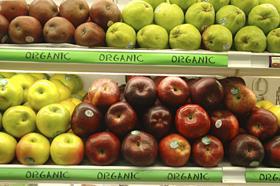
Last month, the bi-annual Organic Food Conference 2021 took place both online and live from Warsaw, Poland, organised by IFOAM Organics Europe with the support of the Polish Chamber of Organic Food.
This latest edition was themed ‘The future of organic food’, attracting over 150 participants from the organic food sector. The following is a list of some of the key takeaways from the event, according to IFOAM Organics Europe:
- In his closing speech, the European Commissioner for Agriculture and Rural Development, Janusz Wojciechowski, recognised organic farming as part of the solution to the climate and biodiversity crises.
- Increasing both demand and supply of organic food is crucial to reach the EU’s 25 per cent organic land target laid out in the Farm to Fork and Biodiversity strategies.
- Organic production and retail have been growing steadily over the past decades. Yet, more knowledge and data need to be collected to gain deeper insights into the development of the organic sector, especially on organic retail, sales channels and intra-EU trade.
- The PlanetScore, a life cycle analysis-based environmental label considering additional indicators, such as biodiversity, impact of pesticides and animal welfare, could be a comprehensive alternativeas a basis for the “sustainable food labelling framework” rather than the NutriScore, already used in several Member States.
- Better structure of supply chains and increased cooperation among all organic operators in the production chain is crucial to address the lack of local infrastructures, adapt production types, innovate and develop organic breeding.
- Just remuneration and long-term agreements between producers, processors and retailers are essential to ensure fairness in the organic value chain.
- Less is more when it comes to packaging organic products. Organic producers need to consider the organic principles, especially that of ecology.
- Organic operators, processors and traders need to prepare for modifications concerning the use of flavourings, cleaning and disinfection products, the management of residues, group certification and imports to ensure successful implementation of the new EU Organic Regulation, applying from 1 January 2022.
- Across Europe, farmers, food processors, retailers and traders are already transforming food and farming and are ready to deliver to reach 25 per cent organic farming by 2030.



